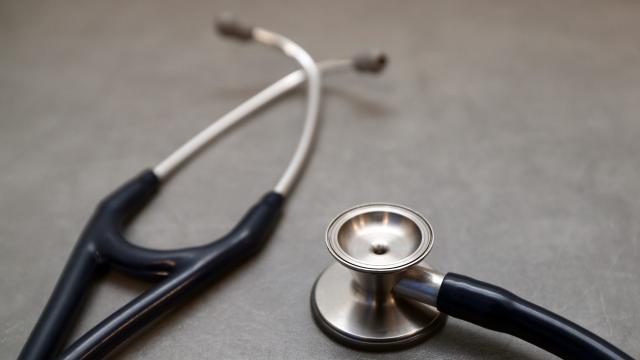Climate change is set to make us sicker. There are wildfires and their air pollution; insects and the diseases they spread. There’s drought and the consequences of water shortages, go on and on.
All this is why health professionals spanning over 70 institutions, from the American Academy of Pediatricians to Columbia University’s Mailman School of Public Health, have come together to declare climate change a “public health emergency.” As they put it in their declaration, “Climate change is one of the greatest threats to health America has ever faced.” (Not to mention the rest of the world.)
The medical community also outlined potential solutions to the climate crisis, including ending our reliance on fossil fuels, in a policy action agenda first shared with the Associated Press on Tuesday.
If we don’t take action, they say lives are at risk. This is especially true for lower-income families or communities of colour that already face disproportionate health risk.
“Communities that have experienced systemic neglect and environmental racism have the least responsibility for climate pollution but are the most affected,” the declaration reads. “These communities have less access to the political, economic, social, and environmental resources that enable them to cope with climate threats and face potentially unmanageable pressures as the impacts of climate change mount.”
The agenda, whose signatories also include the American Lung Association and American Heart Association, suggests that the United States strengthen its commitments under the Paris Agreement, from which Donald Trump announced his intention to withdraw the country in 2017. It also notes that policies should help push a transit revolution.
If more of us biked or walked instead of drove, we’d be exercising more and could reduce rates of obesity and heart disease, the leading cause of death in the U.S.—not to mention lowering our carbon footprint. Health officials want to see policies that reduce carbon emissions from the transportation sector while also investing in affordable housing (a suggestion that reminds me a lot of the Green New Deal).
The list of solutions goes on to include investments in our food and water to ensure everyone has access to safe and clean drinking water and food. I’m sure the people of Flint, Michigan, would appreciate that.
Our health is directly linked to what we put into our bodies, and this declaration doesn’t shy away from highlighting the need to transform our food industry and water infrastructure to improve the health of communities. Lead in our drinking water is unacceptable. And so is food waste: Worldwide, the greenhouse gas emissions (largely methane) that result from its arrival to landfills would make it the third-largest carbon polluter after the U.S. and China.
What’s perhaps the most radical proposal listed, however, is sunsetting the fossil fuel industry, something U.S. presidential candidates are also increasingly talking about. These medical groups want to see a transition toward renewable energy ASAP and demand policies that lay out timelines for leaving oil and gas behind.
We know how bad fossil fuels are for the planet and the people closest to them—whether it’s coal mine workers dying from black lung or a natural gas pipeline threatening New York City’s harbours.
“Everyone’s health is really affected by climate change, but some people and their communities are at greater risk,” Deb Brown, the chief mission officer for the American Lung Association, told Earther. “In some communities of colour, they have suffered from environmental injustices, and that has really contributed to existing health inequities and really puts them at greater risk from the dangers of climate change.”
However, the health sector isn’t just calling on everyone else to take action to help the American public. It’s also calling on those within the sector to be leaders. Health agencies should improve their facilities so that they’re prepared for flooding, sea level rise, or whatever climate change impacts will hit them. They should also examine how to lower emissions and reduce their consumption of valuable limited resources like water.
Saving the world from climate change is gonna require everyone’s participation. The consequences are too grave to sit around and do nothing.
